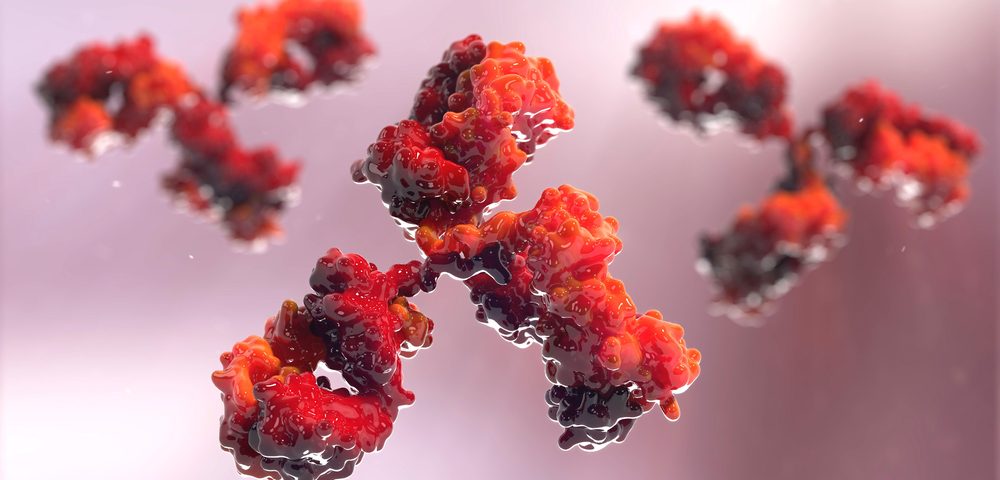Amgen’s investigational therapy AMG 212 (pasotuxizumab) is safe, and showing therapeutic activity against metastatic castration-resistant prostate cancer (mCRPC) in a Phase 1 clinical trial, data show.
This is the first study suggesting that Amgen’s BiTE immunotherapy, designed to bring together patients’ immune T-cells and cancer cells, “can be efficacious in solid tumors,” the researchers said.
The findings were discussed at the recent 2019 American Society of Clinical Oncology (ASCO) Annual Meeting, in Chicago, in the poster “Phase 1 Study of Pasotuxizumab (BAY 2010112), a PSMA-targeting BiTE (Bispecific T Cell Engager) Immunotherapy for Metastatic Castration-Resistant Prostate Cancer (mCRPC).”
The company’s proprietary BiTE technology platform builds antibodies that target two proteins at the same time — one in cancer cells and the other in immune cells. Specifically, AMG 212 targets the prostate-specific membrane antigen (PSMA) in prostate cancer cells and the CD3 protein at the surface of T-cells. This forms a bridge between T-cells and tumor cells, helping the T-cells kill the tumor.
The safety and early anti-cancer activity of AMG 212 was evaluated in a Phase 1 trial (NCT01723475) in men with advanced mCRPC who had failed to respond to treatment with previous standard therapies.
The study enrolled 16 adult men who received one of five doses of AMG 212, ranging between 5 and 80 µg per day, delivered by continuous intravenous infusion.
The treatment showed significant anti-tumor activity in three patients, deemed as a decrease in prostate-specific antigen (PSA) levels by 50% or more. Two patients had long-lasting responses — 14 months in one man receiving the 40 µg dose, and 19.4 months in another receiving the 80 µg dose. The man on the 80 µg dose also achieved complete regression of soft-tissue metastases, and a marked regression of bone lesions, along with a significant and durable improvement in disease-related symptoms.
“Our BiTE immuno-oncology platform offers unique versatility, with the potential to treat various tumors through targeting tumor-associated antigens,” David M. Reese, MD, executive vice president of research and development at Amgen, said in a press release. “These data at the ASCO Annual Meeting reinforce the potential of BiTE technology for patients with difficult-to-treat cancers like … prostate cancer.”
AMG 212 was generally well-tolerated and showed a positive safety profile. Most common treatment-related adverse events were fever, chills, and fatigue. A total 13 patients (81%) had low lymphocyte levels and infections during the trial, which were mild-to-moderate in severity.
“In the first clinical study investigating the potential of a BiTE molecule in solid tumors, AMG 212 showed clinical activity, including two long-term responders,” said Horst-Dieter Hummel, MD, of the University Hospital of Wuerzburg, in Germany, and AMG 212 clinical study investigator. “We look forward to studying AMG 212 further in this patient population.”
The trial stopped enrollment before a maximum tolerated dose of AMG 212 was determined to facilitate initiation of a new study sponsored by Amgen.

